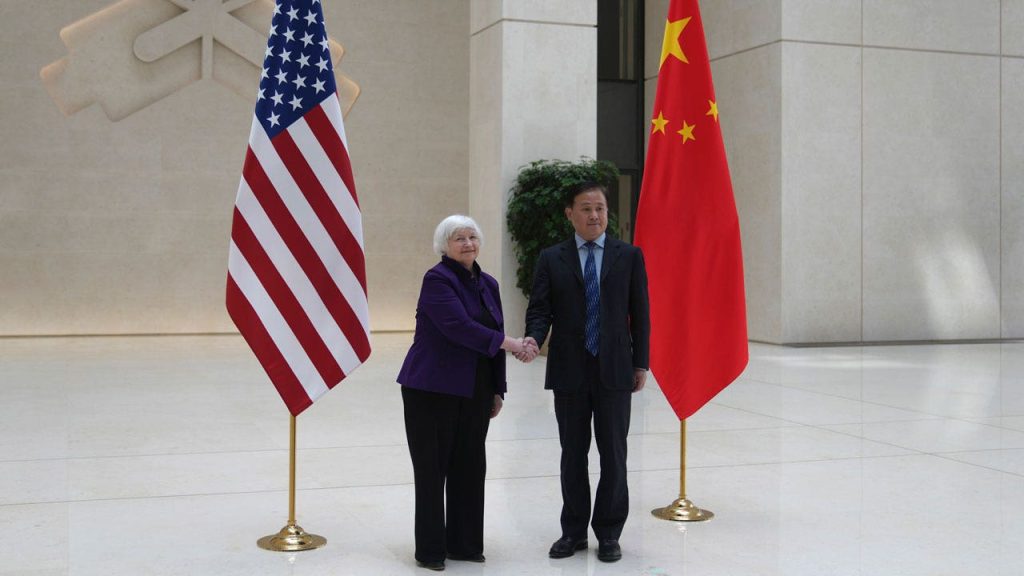China’s growing production of electric cars and other green technologies has sparked a trade dispute with the United States, with concerns also rising in Europe and Mexico. The Biden administration has supported legislation to boost similar industries in the U.S., but fears remain that China’s exports could undercut manufacturers overseas. China’s leading automaker BYD has introduced an electric SUV for just $14,000, posing a threat to U.S. carmakers. Former President Trump has vowed to block Chinese car imports through Mexico if reelected.
After years of subsidizing its industries, China has become a major player in the global market for electric vehicles, solar panels, and batteries. Chinese companies are producing more electric vehicles annually than they can sell domestically, leading to increased exports. This situation also applies to other industries, including solar panels, batteries, and steel. There are concerns that China’s surplus capacity could result in a flood of exports that harm international competitors. Economists warn that if domestic demand does not pick up, China will seek markets outside the country.
The current trade dispute between the U.S. and China is reminiscent of past conflicts. Treasury Secretary Janet Yellen has highlighted the Biden administration’s concerns about China flooding markets with artificially cheap goods, as seen in the solar cell industry. China, the world’s largest producer of solar cells, has been accused of exporting products at artificially low prices, leading to the closure of American companies like Suniva. The issue of overcapacity in cutting-edge industries such as solar cells, batteries, and automobiles has become a key point of contention.
Both the U.S. and China are providing subsidies to support their green technology industries, but China’s subsidies are significantly larger. While the U.S. has implemented measures like stimulus checks to boost consumption, China focuses more on production subsidies. The Biden administration’s policies supporting clean energy and semiconductors have drawn criticism from China, with the country filing a complaint with the World Trade Organization. Despite ongoing talks between the two sides, China has not made any commitments to address American concerns.
The rapid expansion of China’s electric vehicle production has led to intense price competition that could result in some companies going out of business. Chinese experts acknowledge the need for better policy coordination to encourage technological development without creating overinvestment. Treasury Secretary Yellen has stressed the importance of addressing China’s industrial strategy to prevent the flooding of markets with exports that harm American firms. While the issue may take time to resolve, China has indicated a willingness to engage in discussions and recognize the importance of the concerns raised by the United States.


